"Every rose has a fragrance" - Henri Delbard
nippstress - zone 5 Nebraska
10 years ago
Featured Answer
Sort by:Oldest
Comments (20)
porkpal zone 9 Tx
10 years agolast modified: 9 years agokittymoonbeam
10 years agolast modified: 9 years agoRelated Discussions
Olga...Delbard roses?
Comments (38)If you want a Delbard from Ashdown, you have to request it from their library. I think they've had very high demand on these roses which is why they don't often get listed for sale. Both of my Delbard's, Grimaldi and Edgar Degas, did very well in their first winter. Grimaldi is already a large bush and just started blooming. I got Henri Matisse and Imperatrice Farah this year, and I'm hoping to get a few more next year....See MoreDelbards in zone 5
Comments (5)Unfortunately, Henri Matisse doesn't have much fragrance. It's a very small plant and while I do like it, it hasn't done very well for me. I prefer the shrubbier Delbards like Grimaldi or Edgar Degas. They don't have much scent but both grow and bloom a ton. Grimaldi likes to pretend to be a climber. I don't have Alfred Sisley but I'd predict that one would do well....See MoreDelbard Roses at Rankins - what to order?
Comments (19)Hi, Betsy, I bought my Belle du Seigneur from Swane with the label on it (may be another case of mis-label). When I brought it, the flowers are white with a hints of creamy yellow/pale lemon in the centre and after several months in my garden, the colour of the flowers intensified and the centre turns to more orange/red/ochre but the flowers when fully opens still fades to pure white and the colour are still not as rich as the picture you posted. I don't know why; may be the temp in summer cause the fading in colour as my Comtes de Champaigne, Peace changes colours when the temp is high (Comtes turn from yellow to pink while Peace from yellow to white). However, in many cases, I find that the colour of the roses becomes richer months after I bought it. I have prune the Bell du S a few weeks ago and is waiting for new flowers to appear -- I am eager to see what colour it is after it stabilized....See MoreDelbard roses
Comments (9)Went down to Nar Nar Goon for their Garden Open Day this weekend past and despite the wind and the rain ... had a saunter through their rose fields. They had some of their 2005 new releases on show and sale ... Grand Nord in particular caught my eye .... lovely BIG version of Our Vanilla ... great for bridal bouquets. They are also selling a whole range of standard Delbards this year ... I'm wondering how to fit in a row of standard Henri Matisses in my small front garden patch ... hmmm. Staff were friendly and helpful and the talk by Andrew Simpson was informative and humorous. Did anyone else go visit?...See Moresidos_house
10 years agolast modified: 9 years agohoovb zone 9 sunset 23
10 years agolast modified: 9 years agorosefolly
10 years agolast modified: 9 years agoUser
10 years agolast modified: 9 years agonippstress - zone 5 Nebraska
10 years agolast modified: 9 years agosidos_house
10 years agolast modified: 9 years agomendocino_rose
10 years agolast modified: 9 years agokittymoonbeam
10 years agolast modified: 9 years agosidos_house
10 years agolast modified: 9 years agoThorntorn
10 years agolast modified: 9 years agonippstress - zone 5 Nebraska
10 years agolast modified: 9 years agorideauroselad OkanaganBC6a
10 years agolast modified: 9 years agoThorntorn
10 years agolast modified: 9 years agosidos_house
10 years agolast modified: 9 years agonippstress - zone 5 Nebraska
10 years agolast modified: 9 years agobarbarag_happy
7 years agonippstress - zone 5 Nebraska
7 years ago
Related Stories
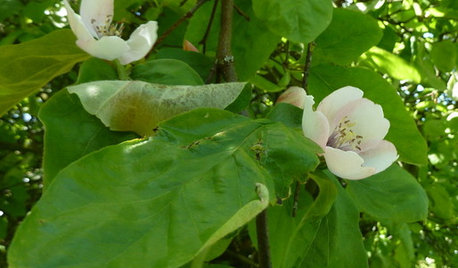
EDIBLE GARDENSWhy Grow Quince? For Beauty, Fragrance and Old-Time Flavor
Delightfully perfumed fruit and lovely spring blossoms make this apple and pear cousin worth a spot in the garden
Full Story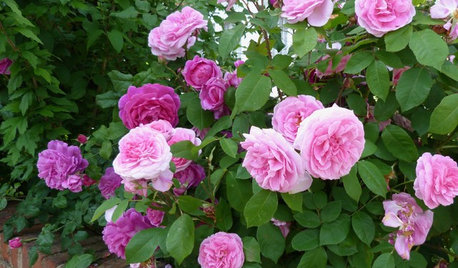
GARDENING GUIDESWhat Kind of Roses Should You Grow?
Want to add the beauty of roses to your garden? Find out which ones, from old-fashioned to modern, are right for you
Full Story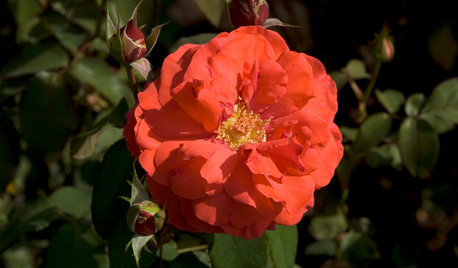
GARDENING GUIDES6 Captivating Roses for an Alluringly Fragrant Garden
Perfume your garden with aromas from richly spicy to lightly sweet, without sacrificing an inch of color
Full Story
WINTER GARDENINGPruning Secrets for Exquisite Roses
Encourage gorgeous blooms year after year with this time-tested advice on how to prune your rosebush in winter for health and shape
Full Story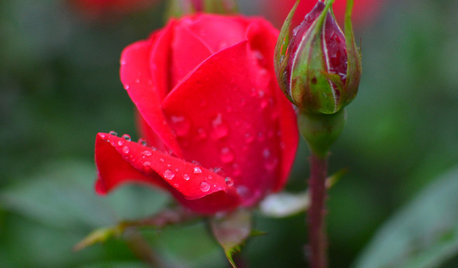
GARDENING GUIDESGreat Design Plant: Knock Out Roses
As glorious as their high-maintenance kin for a fraction of the work, Knock Out roses make even beginners look like garden stars
Full Story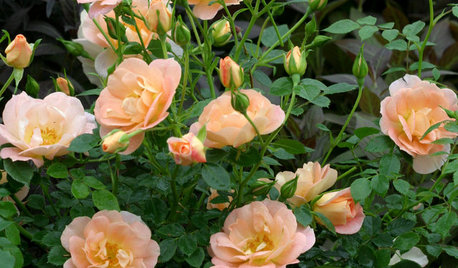
GARDENING GUIDES6 Wonderfully Easy Roses for Any Gardener
Look like an expert even if you're just starting out, with these low-maintenance gems of the rose world
Full Story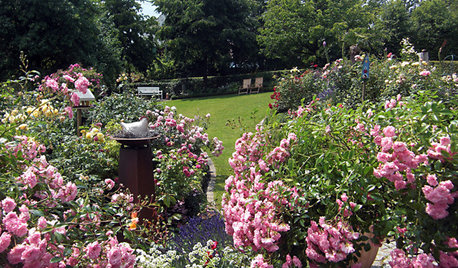
GARDENING GUIDES5 Sweet to Spirited Pink Roses for an Enchanting Garden
Whether you go demure or daring, there's a pink rose here to make you flush with garden pride
Full Story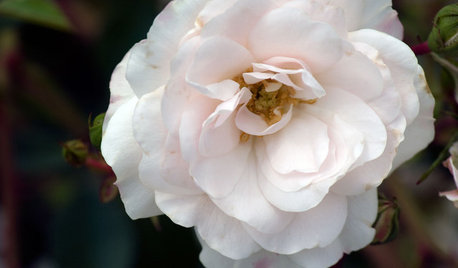
GARDENING GUIDES5 Favorite White Roses for a Purely Beautiful Garden
How does your garden glow? With roses that look like light and smell divine
Full Story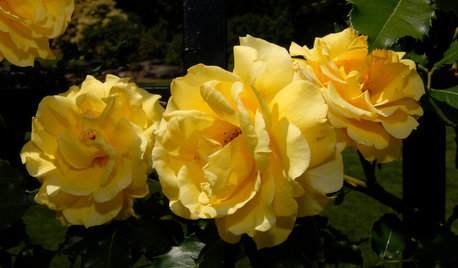
GARDENING GUIDES5 Favorite Yellow Roses for a Joyful Garden
Make 'cheery' the name of your garden game when you order your roses sunny side up
Full Story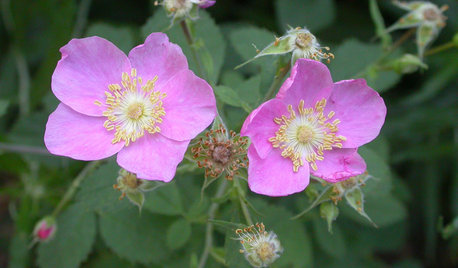
GARDENING GUIDESGreat Design Plant: Rosa Californica
Plant California wild rose for easy care and a touch of romance in your native garden
Full Story



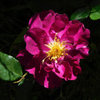
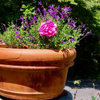
noseometer...(7A, SZ10, Albuquerque)